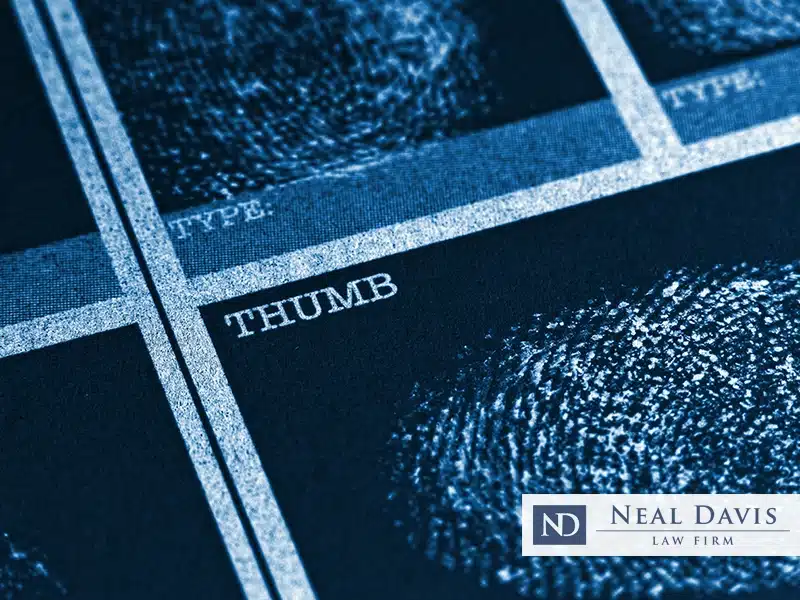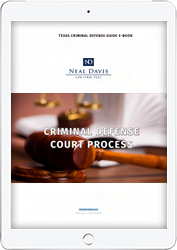If you’re facing a criminal charge or criminal conviction in Texas, you may want to know about sealing your criminal record. Is that possible? Our law firm has answers for you.
Having to disclose an arrest can bring long-term hardship, even if you weren’t convicted of the offense. You may get a feeling of dread any time a potential employer asks if you’ve ever been arrested, or you may have difficulty finding a place to live or even traveling internationally.
The truth is that an arrest record follows you long after you’ve served your sentence.
Fortunately, Texas law offers two methods to remove or seal information in your record. Expunction removes the information completely—the record of the charge is deleted and destroyed. Non-disclosure seals the record so that only government agencies and law enforcement can see it. Each method has its own eligibility requirements. People who don’t qualify for a full expunction may still be able to obtain a non-disclosure order.
The difference between expunction and non-disclosure
Non-disclosure of a criminal record and expunging a criminal record are two very different things, but the final effect is similar: no member of the public has access to the record when they search your criminal history. However, expunctions and non-disclosures happen under two very different circumstances and have different results.
- Expunction (or “expungement”) erases the record of a charge. Even government officials don’t have a record of your arrest. It’s as if it never happened. It’s available to people who were arrested but not charged, whose charges were dismissed, who were acquitted or pardoned, or who were victims of identity theft.
Expunction is not available to those given deferred adjudication or probation or who have other charges or convictions stemming from the same “criminal episode.” Other conditions and time restrictions apply. Once a record is expunged, information related to it is permanently deleted from a person’s record, and they can deny the arrest ever occurred. - Non-disclosure is similar to sealing a record. Non-disclosure is available to people who have accepted deferred adjudication or probation as long as they complete a waiting period defined by the court and keep a clean record. Other conditions can apply. If the court grants the order, then the information covered by the order is removed from public records and databases. However, the government and law enforcement can still see the information.

10 Ways a Criminal Record Impacts Your Life
Understand the long-term consequences of a conviction in Texas.
Am I eligible for expunction?
Expunging your record is a straightforward way to clear your past of criminal charges that you were never convicted of. Many times, people accused of crimes are good, honest folks caught in a bad situation.
Most are unaware they have a legal skeleton in their closet until they try to get a medical license, a commercial driver’s license, or a job that requires stringent background checks. Expunging your record means that the allegations you were charged with won’t damage your reputation or inhibit your ability to earn a living.
The first thing to do to clear your criminal record in Texas is to check your eligibility.
Under Texas law, expunction can only be granted under certain circumstances:

- If the criminal charges were later dismissed
- If you were acquitted at trial
- If you were convicted but later found to be innocent
- If the prosecutor advised expunction
- If you were pardoned by the governor of Texas
- If you were “no-billed” by a grand jury (meaning the grand jury didn’t forward your criminal charge to a court for trial)
There are also some minor offenses and juvenile convictions that are eligible for expunction after a certain length of time.
Even if you’re not eligible for expunction, you may still qualify to ask for non-disclosure of the record. Experienced Houston criminal defense attorney Neal Davis can tell you if your case meets the qualifying criteria.
How do I apply for criminal record expunction?
To obtain an expunction, you or your defense attorney must file a petition with the court. The court fee for this is around $100. The state must also be notified.
Then, you wait—perhaps for as long as a month—to learn if you’ve been approved for the process. If you’re approved, you’ll be given a date for your expungement hearing, which could be several weeks later.
There is a lot of information that goes into preparing a petition:
- Personal information. For starters, you must include personal information such as your date of birth, driver’s license number and social security number.
- Arrest reports. The court also needs complete arrest information, including the crimes charged, dates of arrest and charging agencies.
- Agency records. In addition, the court needs to know what agencies might have relevant records so that they can notify them of the outcome of the petition.
The petition must be filed in the county where you were arrested or where you faced the criminal charges.
Once you’ve prepared a petition for expunction, you must place an expunction order. In most cases, it’s the defendant’s attorney who prepares the order. This is the document the judge signs, directing the relevant government agencies to destroy all criminal records. It’s up to you to prepare the order accurately and with all of the necessary information.
If you meet the requirements, the judge must grant the petition and order the records expunged. It can take about 6 months or more for all of the proper agencies to remove the charge from your criminal record.
After the expunction is complete, the state keeps the records for a designated period of time. The reason for this is to have the records available in case the person charged later brings a case for wrongful imprisonment. After the statute of limitations runs out, the records are completely destroyed.
Life After Prison: Finding Employment After Incarceration
Completing a prison sentence or paying a fine is only the beginning of the repercussions a criminal offender may experience in their lifetime.
Am I eligible for non-disclosure?
Non-disclosure cases are different from expunction cases in that they are often discretionary. That is, the judge can decide if they want to grant the request for non-disclosure or not. This is different from expunction, where the court only has to make an easy decision as to whether a petition meets very strict, easy-to-follow requirements.
When a person qualifies for non-disclosure, they often still have to prove to the court that the non-disclosure is in the interests of justice. It’s critical to carefully prepare a non-disclosure petition to make the best possible case to the court that they should grant your request.
Not all crimes are eligible for expunction or non-disclosure
Keep in mind that the nature of your criminal charge determines whether or not you’re eligible for the expunction of a charge or sealing of a criminal record.
For instance, a sex offense conviction in Texas cannot be removed from your criminal record. Only if you weren’t convicted can you petition the court to expunge your sex offense arrest and charge from your criminal record. But it’s vital that the charge did not involve violence or sexual contact with minors.
For some misdemeanor crimes, you can gain expunction if you pleaded “no contest” or “guilty” before trial while agreeing to probation, community service or some other course of action, which you then followed. (This is known as “deferred adjudication”.) After that, you can request an expungement of the charge, for which you were never tried.
Additionally, the trial court will not grant expunction to an adult who has been convicted of a felony within 5 years of arrest for the crime to be expunged or has received deferred adjudication or probation.
Also, the trial court won’t provide an expunction if the offense is part of a “criminal episode.” That means the defendant has pending charges or was convicted of another crime that happened during the same episode as the crime for which they seek expungement.
You also cannot seek expungement of a felony charge that was dismissed if the statute of limitations for that crime hasn’t expired. Often lasting for 3 years from the date of the alleged crime, a statute of limitations is the time in which a person can be prosecuted. After it expires, the person cannot be prosecuted. But until it expires, an expunction is not available, even for a dismissed felony charge.
Ready to explore your legal options? Get help from an experienced Houston criminal defense attorney.
If you’re interested in an expunction or non-disclosure of your records in Texas, skilled Houston criminal defense attorney Neal Davis may be able to help. From discussing eligibility to writing your petition and order, our firm is ready to help you fight for your rights.
Contact the Neal Davis Law Firm today to schedule an appointment.
Criminal Defense Court Process
FREE E-BOOKLearn all about the legal process and your legal rights.


